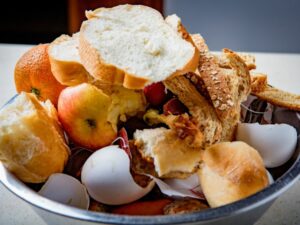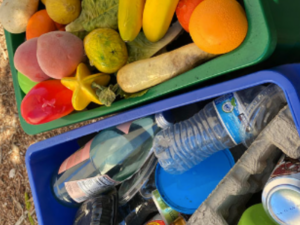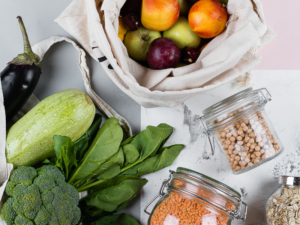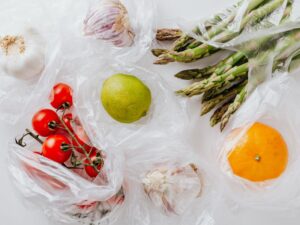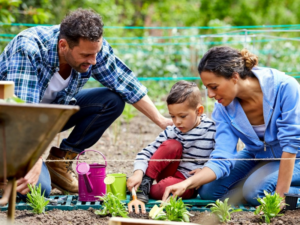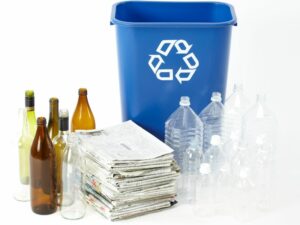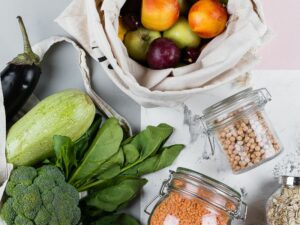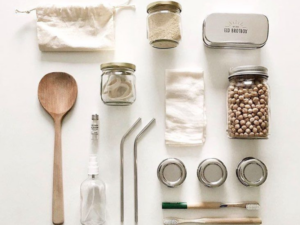Zero waste
Food Recovery and Donation
Reducing is always the best method to solve our food waste problem, but when we are not able to reduce, we can still rescue and divert in order to use food waste as a valuable resource and not add it to the landfill. If the food is still edible, donate it to help those in…
Read MoreFood Safety and Waste Prevention
Even if we’ve planned to the tee and followed all the best techniques, sometimes things don’t go exactly how we want. It’s important to understand when to call it quits and compost that food instead, but many people are too quick to toss out edible food because of confusing labels or cosmetic imperfections. Food Labels…
Read MoreWorried About Your Carbon Footprint? Shopping Local Might Be the Key
Lowering contribution to this form of pollution is easy: shop local!
Read MoreSecondhand compost bins take recycling to the next level
At Solana Center, we live the values of reduce, reuse, and recycle in all forms. This spurred the idea to offer our pre-loved bins to the community at reduced prices at our store. This is a solution to both provide residents with an opportunity to give their compost bins another life if they aren’t being…
Read MoreWorried About Your Carbon Footprint? Shopping Local Might Be the Key
Blog Post by Volunteer and Student, Anna Potratz The pollution that comes from simply shipping food across the country can do massive environmental damage. Delivery trucks can put up to 1,522 tons of carbon emissions into the atmosphere every year, and about 70% of our food is shipped by truck, according to the US Energy…
Read MoreFrom the Rotline: Are all Biodegradable Plastics Compostable?
Rotline Question: What is the difference between biodegradable plastics and compostable plastics? Answer: Plastic that is compostable is biodegradable, but not every plastic that is biodegradable is compostable. Biodegradable plastic may be engineered to biodegrade in soil or water, whereas compostable plastic refers to biodegradation into soil conditioning material (i.e., compost) under a certain set…
Read MoreThe Benefits of Composting as a Family
Teaching kids how to be responsible stewards of our home planet can start in their early years! Along with spending time in nature, composting is a great way to introduce children to the environment and the science behind many natural systems. When we teach kids how composting works and get the whole family involved, they…
Read MoreRecyclable Materials Breakdown
Many of us have run into confusion around recycling, not sure what is recyclable and what isn’t. Well, it’s not just you, recycling is complicated. This is mostly because the term recyclable is pretty complicated. While anything can technically be used as a material for something else, whether something is recyclable is different from something actually getting recycled. Recyclable…
Read MoreReuse to Reduce Waste
Reusing items slows the process of take and dispose. Reusing is our main tool to reduce, since the more we reuse what is already there, the less we need. We can reuse materials that were meant to be disposed of, giving them a second life, or we can choose materials that were meant to be…
Read MoreGet Started for Plastic Free July!
Plastic Free July is here! Choosing to refuse and prevent plastic use in everyday living all year round is a great intention. We’re sharing some inspiration all month long to help you get started. Getting started: Start out small with a product audit. Take a look at what you’re buying and trashing and the materials…
Read More

